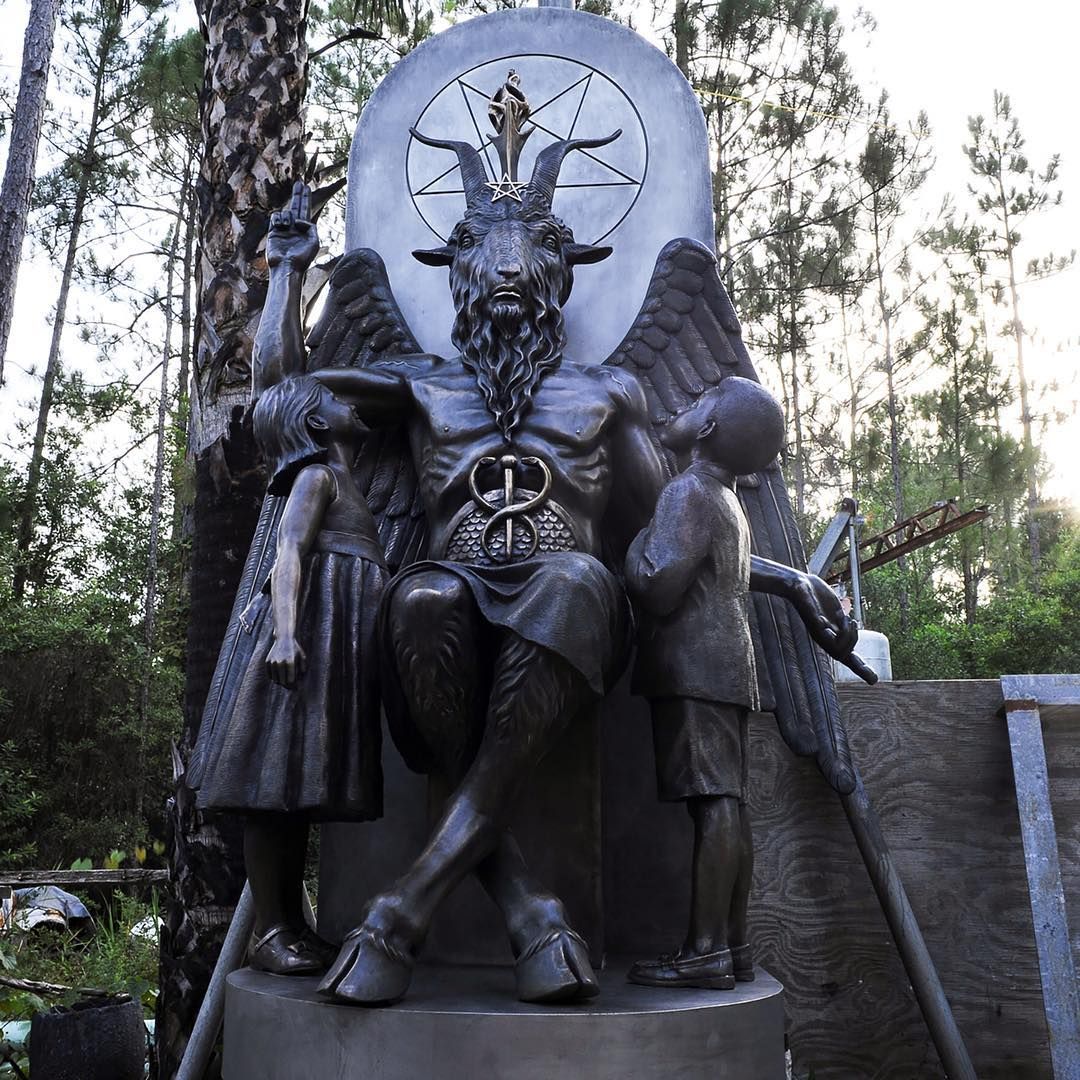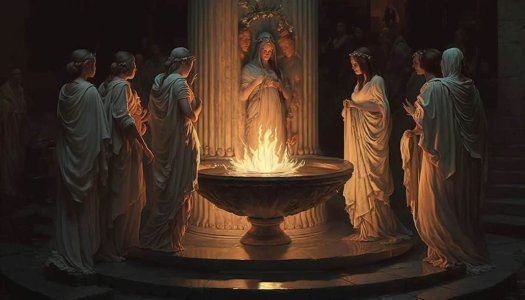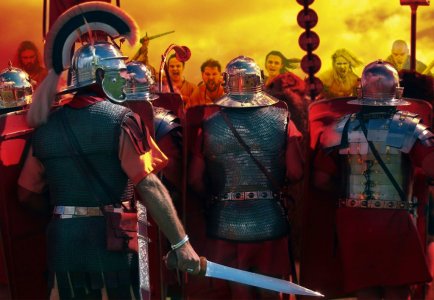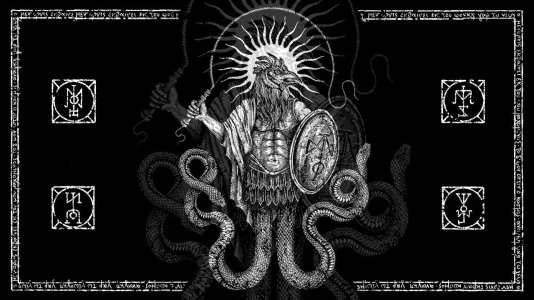- Mar 5, 2024
- 2,299
- 1,127
Escaping Eternal Corruption, By Attaining Unto Glory And Virtue, Part 1
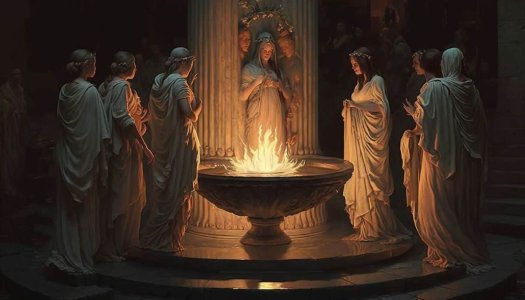
When is the last time someone preached to you that the Lord Jesus Christ has called you to His own glory and virtue? While I do not teach the doctrine of sinless perfection, I fully believe that we are called to emulate Him by following the same pattern He set for us, which including living a virtuous and godly life, something Peter will now start this letter off with by preaching as well:
1 Simon Peter, a slave and apostle of Jesus Christ, to those having obtained like precious faith with us through the righteousness of our God and Savior Jesus Christ. 2 Grace and peace be multiplied unto you in the recognition of God and Christ our Lord, 3 as His divine power has given unto us all things that pertain to life and godliness through the recognition of Him having called us unto His own glory and virtue, 4 through which He has given unto us exceedingly great and precious promises, that through these you might become partakers of the divine nature, having escaped the corruption that is in the world through lust. (2 Peter 1:1-4)
The word "virtue" was used three times in the opening verses of this letter because Peter especially wanted to drive home a point. There was a heresy called Gnosticism now sweeping the churches, and as will be covered in later studies, many were falling back into the sins of the flesh they once escaped from because of the presence of these heretics in the churches. Those being seduced back into sin will cause Peter to warn in the next Chapter:
20 If after having escaped the pollutions of the world through the recognition of our Lord and Savior Jesus Christ, they are again entangled in them and overcome, the latter end is worse for them than the beginning. 21 For it would have been better for them not to have known the way of righteousness than, having known it, to turn from the holy commandment delivered to them. 22 But it has happened unto them according to the true proverb: “A dog returns to his own vomit,” and, “a sow having been washed to wallowing in the mire.” (2 Peter 2:20-22)
This is why even now in his opening verses, Peter was urging readers to "escape the corruption that is in the world through lust." They were to emulate Christ in fleeing from sexual immorality and instead embrace the moral virtue and purity He walked in, because this was highly valued in the eyes of God. Even in Roman society moral virtue was valued. An example can be seen in the Vestal Virgins (pictured above), who swore an oath to maintain their virginity and moral purity until the age of thirty. Those chosen as Vestals were therefore held up within Roman society as the epitome of what virtuous women were like.
Virginity was of paramount importance in Roman society, particularly for the Vestal Virgins, who were expected to embody the highest standards of purity. Their vow of chastity was not merely a personal commitment but a reflection of their role as representatives of the state’s moral integrity... A Vestal who broke her vow could be punished by being buried alive, a fate that underscored the seriousness with which Roman society regarded their sacred duties. This harsh reality contributed to the cultural perception of the Vestal Virgins as paragons of virtue. (The Role of the Vestal Virgins in Upholding Roman Virtues. Roman Mythology Worldwide).
This same attitude of regarding virtuous women as treasures of immense value was expressed in scripture as well regarding the women of God. One writer put it well by stating it this way:
The Bible has much to say about the two words "virtue" and "virtuous." For most Bible believing women, the first verse to come to mind is Proverbs 31:10, where the Lord said, "Who can find a virtuous woman? For her price is far above rubies." This virtuous woman who is so rare is priceless. No amount of money can buy her for her price is so far above the most precious jewels. God, himself, puts this high price on such a woman. (A Biblical Study of the Word Chaste, Understanding Your Bible.com)
But while virtuous women were placed on a high pedestal, they could also be corrupted, which if it happened brought shame upon husbands who had entrusted their hearts and lives to them. As an ancient proverb stated, "A virtuous woman is a crown to her husband: but she that makes ashamed is like rottenness in his bones." (Proverbs 12:4)
Unfortunately, early church records show that both men and women were being targeted by the Gnostics and seduced by them. Christian men were being lured into sexual sin by female "prophetesses" such as the one described in Revelation 2:20, and Christian women were being targeted by Gnostic sorcerers with extraordinary yet demonic supernatural gifts. The call of God, therefore, was to maintain moral purity in the face of sexual temptation, which was now increasingly creeping into the churches in the form of heretics bent on seducing believers into sexual immorality (Jude 1:4). As Peter will state later in this letter concerning them:
13 These are spots and blemishes, reveling in their own deceits while feasting together among you, 14 having eyes full of an adulteress and incessant sin, enticing unstable souls, having a heart trained upon sexual covetousness; they are accursed children. (2 Peter 2:13-14)
Changing From Glory To Glory
So how were such temptations to be resisted? By depending upon the grace of God and His Divine power. As Peter exhorted, "His divine power has given unto us all things that pertain to life and godliness." In other words, the Lord was calling them to escape the corruption that was in the world through lust by walking in His glory and virtue. Though not readily apparent, the apostle Peter was actually making reference to Christ's transfiguration here, which Peter himself had been an eyewitness to:
1 Now after six days Jesus took Peter, James, and John his brother, led them up on a high mountain by themselves; 2 and He was transfigured before them. His face shone like the sun, and His clothes became as white as the light. 3 And behold, Moses and Elijah appeared to them, talking with Him. 4 Then Peter answered and said to Jesus, "Lord, it is good for us to be here; if You wish, let us make here three tabernacles: one for You, one for Moses, and one for Elijah." 5 While he was still speaking, behold, a bright cloud overshadowed them, and suddenly a voice came out of the cloud, saying, "This is My beloved Son, in whom I am well pleased. Hear Him!" 6 And when the disciples heard it, they fell on their faces and were greatly afraid... 9 And as they came down from the mountain, Jesus commanded them, saying, "Tell the vision to no one until the Son of Man is risen from the dead." (Matthew 17:1-9)
To quote Peter again, his exhortation was "Grace and peace be multiplied unto you in the recognition of God and Christ our Lord, 3 as His divine power has given unto us all things that pertain to life and godliness through the recognition of Him having called us unto His own glory and virtue." He was therefore saying here that they needed to walk in the recognition of who Christ truly was; the Son of God made manifest, and clothed in glory and virtue, not the mythological one the Gnostics were teaching who engaged in sin. If they saw Him as He truly was, they would continue becoming conformed to His image; the Son of God, made manifest in the flesh.
The apostle Paul likewise made the same point when he said to the Corinthians that by beholding the glory of the Lord Jesus Christ, they would be changed from glory to glory into His image:
We all, with unveiled face, beholding as in a mirror the glory of the Lord, are being transformed into the same image from glory to glory, just as by the Spirit of the Lord. (2 Corinthians 3:18)
Peter had witnessed Him transfigured on the mountain, whereas the apostle Paul had been taken to Third Heaven, where he undoubtedly saw the Lord Jesus Christ in His glory firsthand as well. And Paul initially encountered Christ Jesus supernaturally on the road to Damascus, where scripture records:
3 As he journeyed he came near Damascus, and suddenly a light shone around him from heaven. 4 Then he fell to the ground, and heard a voice saying to him, "Saul, Saul, why are you persecuting Me?" 5 And he said, "Who are You, Lord?" Then the Lord said, "I am Jesus, whom you are persecuting." (Acts 9:3-5a)
Stephen saw a vision of the Lord Jesus Christ being seated at God the Father's right hand in Heaven. Thus, they were all "seeing" Him in His glory in one way or another, whether through their own experiences or through what was being reporting to them. They were also seeing Him manifest Himself in their midst through supernatural gifts. He was addressing them directly through prophetic utterance, including when the churches received letters like the Book of Revelation, where the Lord addressed them directly regarding what they were doing, what He was seeing, what He was pleased with, and what He was not (Revelation 1-3). So in one way or another, all were "seeing" and hearing Him. The only question was, who were conforming themselves to His image based upon what they were seeing and hearing? Fortunately, when it came to conforming themselves, they were not alone, for as Peter stated above, the power of God to do so was being granted to them through the Holy Spirit, which was being poured out upon the churches in great abundance.

When is the last time someone preached to you that the Lord Jesus Christ has called you to His own glory and virtue? While I do not teach the doctrine of sinless perfection, I fully believe that we are called to emulate Him by following the same pattern He set for us, which including living a virtuous and godly life, something Peter will now start this letter off with by preaching as well:
1 Simon Peter, a slave and apostle of Jesus Christ, to those having obtained like precious faith with us through the righteousness of our God and Savior Jesus Christ. 2 Grace and peace be multiplied unto you in the recognition of God and Christ our Lord, 3 as His divine power has given unto us all things that pertain to life and godliness through the recognition of Him having called us unto His own glory and virtue, 4 through which He has given unto us exceedingly great and precious promises, that through these you might become partakers of the divine nature, having escaped the corruption that is in the world through lust. (2 Peter 1:1-4)
The word "virtue" was used three times in the opening verses of this letter because Peter especially wanted to drive home a point. There was a heresy called Gnosticism now sweeping the churches, and as will be covered in later studies, many were falling back into the sins of the flesh they once escaped from because of the presence of these heretics in the churches. Those being seduced back into sin will cause Peter to warn in the next Chapter:
20 If after having escaped the pollutions of the world through the recognition of our Lord and Savior Jesus Christ, they are again entangled in them and overcome, the latter end is worse for them than the beginning. 21 For it would have been better for them not to have known the way of righteousness than, having known it, to turn from the holy commandment delivered to them. 22 But it has happened unto them according to the true proverb: “A dog returns to his own vomit,” and, “a sow having been washed to wallowing in the mire.” (2 Peter 2:20-22)
This is why even now in his opening verses, Peter was urging readers to "escape the corruption that is in the world through lust." They were to emulate Christ in fleeing from sexual immorality and instead embrace the moral virtue and purity He walked in, because this was highly valued in the eyes of God. Even in Roman society moral virtue was valued. An example can be seen in the Vestal Virgins (pictured above), who swore an oath to maintain their virginity and moral purity until the age of thirty. Those chosen as Vestals were therefore held up within Roman society as the epitome of what virtuous women were like.
Virginity was of paramount importance in Roman society, particularly for the Vestal Virgins, who were expected to embody the highest standards of purity. Their vow of chastity was not merely a personal commitment but a reflection of their role as representatives of the state’s moral integrity... A Vestal who broke her vow could be punished by being buried alive, a fate that underscored the seriousness with which Roman society regarded their sacred duties. This harsh reality contributed to the cultural perception of the Vestal Virgins as paragons of virtue. (The Role of the Vestal Virgins in Upholding Roman Virtues. Roman Mythology Worldwide).
This same attitude of regarding virtuous women as treasures of immense value was expressed in scripture as well regarding the women of God. One writer put it well by stating it this way:
The Bible has much to say about the two words "virtue" and "virtuous." For most Bible believing women, the first verse to come to mind is Proverbs 31:10, where the Lord said, "Who can find a virtuous woman? For her price is far above rubies." This virtuous woman who is so rare is priceless. No amount of money can buy her for her price is so far above the most precious jewels. God, himself, puts this high price on such a woman. (A Biblical Study of the Word Chaste, Understanding Your Bible.com)
But while virtuous women were placed on a high pedestal, they could also be corrupted, which if it happened brought shame upon husbands who had entrusted their hearts and lives to them. As an ancient proverb stated, "A virtuous woman is a crown to her husband: but she that makes ashamed is like rottenness in his bones." (Proverbs 12:4)
Unfortunately, early church records show that both men and women were being targeted by the Gnostics and seduced by them. Christian men were being lured into sexual sin by female "prophetesses" such as the one described in Revelation 2:20, and Christian women were being targeted by Gnostic sorcerers with extraordinary yet demonic supernatural gifts. The call of God, therefore, was to maintain moral purity in the face of sexual temptation, which was now increasingly creeping into the churches in the form of heretics bent on seducing believers into sexual immorality (Jude 1:4). As Peter will state later in this letter concerning them:
13 These are spots and blemishes, reveling in their own deceits while feasting together among you, 14 having eyes full of an adulteress and incessant sin, enticing unstable souls, having a heart trained upon sexual covetousness; they are accursed children. (2 Peter 2:13-14)
Changing From Glory To Glory
So how were such temptations to be resisted? By depending upon the grace of God and His Divine power. As Peter exhorted, "His divine power has given unto us all things that pertain to life and godliness." In other words, the Lord was calling them to escape the corruption that was in the world through lust by walking in His glory and virtue. Though not readily apparent, the apostle Peter was actually making reference to Christ's transfiguration here, which Peter himself had been an eyewitness to:
1 Now after six days Jesus took Peter, James, and John his brother, led them up on a high mountain by themselves; 2 and He was transfigured before them. His face shone like the sun, and His clothes became as white as the light. 3 And behold, Moses and Elijah appeared to them, talking with Him. 4 Then Peter answered and said to Jesus, "Lord, it is good for us to be here; if You wish, let us make here three tabernacles: one for You, one for Moses, and one for Elijah." 5 While he was still speaking, behold, a bright cloud overshadowed them, and suddenly a voice came out of the cloud, saying, "This is My beloved Son, in whom I am well pleased. Hear Him!" 6 And when the disciples heard it, they fell on their faces and were greatly afraid... 9 And as they came down from the mountain, Jesus commanded them, saying, "Tell the vision to no one until the Son of Man is risen from the dead." (Matthew 17:1-9)
To quote Peter again, his exhortation was "Grace and peace be multiplied unto you in the recognition of God and Christ our Lord, 3 as His divine power has given unto us all things that pertain to life and godliness through the recognition of Him having called us unto His own glory and virtue." He was therefore saying here that they needed to walk in the recognition of who Christ truly was; the Son of God made manifest, and clothed in glory and virtue, not the mythological one the Gnostics were teaching who engaged in sin. If they saw Him as He truly was, they would continue becoming conformed to His image; the Son of God, made manifest in the flesh.
The apostle Paul likewise made the same point when he said to the Corinthians that by beholding the glory of the Lord Jesus Christ, they would be changed from glory to glory into His image:
We all, with unveiled face, beholding as in a mirror the glory of the Lord, are being transformed into the same image from glory to glory, just as by the Spirit of the Lord. (2 Corinthians 3:18)
Peter had witnessed Him transfigured on the mountain, whereas the apostle Paul had been taken to Third Heaven, where he undoubtedly saw the Lord Jesus Christ in His glory firsthand as well. And Paul initially encountered Christ Jesus supernaturally on the road to Damascus, where scripture records:
3 As he journeyed he came near Damascus, and suddenly a light shone around him from heaven. 4 Then he fell to the ground, and heard a voice saying to him, "Saul, Saul, why are you persecuting Me?" 5 And he said, "Who are You, Lord?" Then the Lord said, "I am Jesus, whom you are persecuting." (Acts 9:3-5a)
Stephen saw a vision of the Lord Jesus Christ being seated at God the Father's right hand in Heaven. Thus, they were all "seeing" Him in His glory in one way or another, whether through their own experiences or through what was being reporting to them. They were also seeing Him manifest Himself in their midst through supernatural gifts. He was addressing them directly through prophetic utterance, including when the churches received letters like the Book of Revelation, where the Lord addressed them directly regarding what they were doing, what He was seeing, what He was pleased with, and what He was not (Revelation 1-3). So in one way or another, all were "seeing" and hearing Him. The only question was, who were conforming themselves to His image based upon what they were seeing and hearing? Fortunately, when it came to conforming themselves, they were not alone, for as Peter stated above, the power of God to do so was being granted to them through the Holy Spirit, which was being poured out upon the churches in great abundance.




